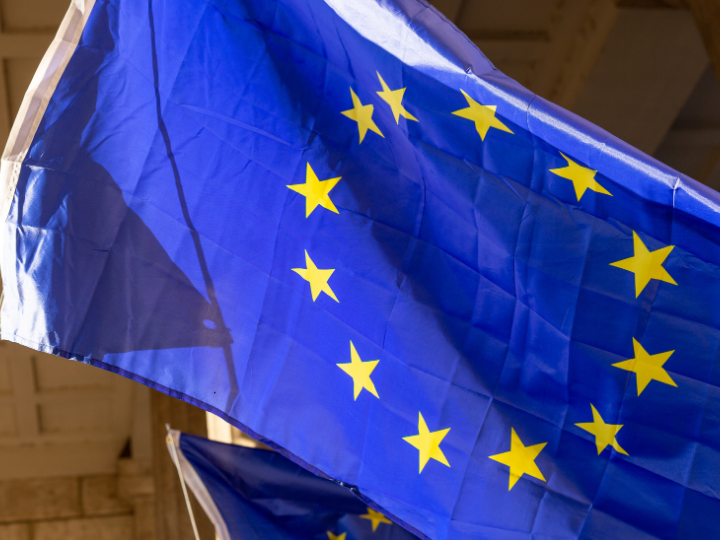by Eva Michaels*
In EU security and defense policy, old concepts die hard. They tend to be sticky, and their shelf life is rarely ever affected by any substantive criticism the EU receives.
The sunk costs are high, and the EU institutions know how to weather a storm, keeping key concepts on life support.
European strategic autonomy is a classic example. It informed the EU’s efforts to grow into a sovereign security actor from the moment then French president Jacques Chirac and British prime minister Tony Blair agreed on the 1998 Saint-Malo declaration.
After the Anglo-French consensus vanished into thin air in the mid-2000s, European strategic autonomy kept floating around and continued to shape the EU’s military crisis management efforts, albeit in a low-risk and low-ambition manner.
The EU revived the concept in late 2013, and it achieved buzzword status upon featuring prominently in the 2016 EU Global Strategy.
We know why the idea of European strategic autonomy struck a nerve among many EU actors then. In line with a fragmentation of global and regional orders, the EU faced manifold internal and external challenges, lending urgency to rethinking European security.
These included the Brexit referendum, the growing contestation of EU foreign and security policy, a decline of U.S. hegemony prompting geopolitical reconfigurations, shifting priorities in Washington’s security and defense policy, the arrival of former U.S. president Donald J. Trump’s administration, and increased insecurity and instability in the EU’s southern and eastern neighborhoods.
Yet, we talk too little about why European strategic autonomy never took off despite all those pressures.
Let’s unpack the reasons.
The concept was left deliberately ambiguous to try and accommodate a wide spectrum of priorities and concerns among EU member states. The EU’s institutions and France as the strongest advocate for l’Europe de la defense (Europe of defense) worked hard to generate a broad consensus at the EU level.
However, they failed to take into account the interests and lack of trust of those EU member states that remained skeptical. The resulting dissension extended beyond the East-West divide. This is a broader problem in EU security and defense policy: policymakers and analysts engage too little about what is acceptable in member states. Broader beliefs and context-specific perceptions at the national level matter. Ideas trickle down and shape material constraints. The EU was not developing into a serious sovereign security actor due to persistent capability shortfalls in member states’ national security and defense.
How, then, can European strategic autonomy be fixed—if it should be?
First, as hard as it is, Europeans need to get rid of ambiguity to come up with a practical concept upon which the capability and action aspects can be strengthened. Yes, this mean revisiting the concept once again, but this time in earnest by defining the necessary steps and commitments.
Europeans don’t need a new terminology, but they need honesty, strategic reconciliation and trust-building. EU actors need to listen to and understand what is acceptable in EU member states and third countries, such as the UK, who might join them on board.
As it is, power in Europe has shifted to the east and should shift more: it is especially important to understand how Central, Eastern, and Southern EU member states perceive European security and the EU’s responses, or lack thereof.
Importantly, European strategic autonomy cannot be anti-Atlanticist. Strengthening the European pillar within NATO will be a reasonable step forward, with sufficient common ground among Europeanists and Atlanticists. In this way, Europe can have more strategic influence, which should be the ultimate goal.
But the EU also needs to avoid over-relying on others for both the anticipation of and response to international security crises. Europe cannot afford to be a bystander when confronted with security threats and challenges in its neighborhood, especially when Washington’s long-term priorities lie elsewhere and when next year’s U.S. presidential election risks undermining NATO.
This requires in-depth learning from crises, including Russia’s aggression against Ukraine since 2014, the 2021 fall of Kabul, escalation in the Sahel, and the recent crisis in Russia, all of which caught many Europeans by surprise.
If the Europeans want to be adequately prepared and act effectively, they need to get better at jointly assessing risks and threats to European security and at pooling crisis response resources. They also need to find ways to promote leadership, including from Southern and Eastern Europe, to gain more political muscle. Most importantly, Europeans need to be realistic and smart when prioritizing their commitments, especially regarding military force projection.
None of the above is rocket science.
*Beatriu de Pinos research fellow at the Barcelona Institute for International Studies (IBEI)
**first published in: Carnegieeurope.eu




 By: N. Peter Kramer
By: N. Peter Kramer

